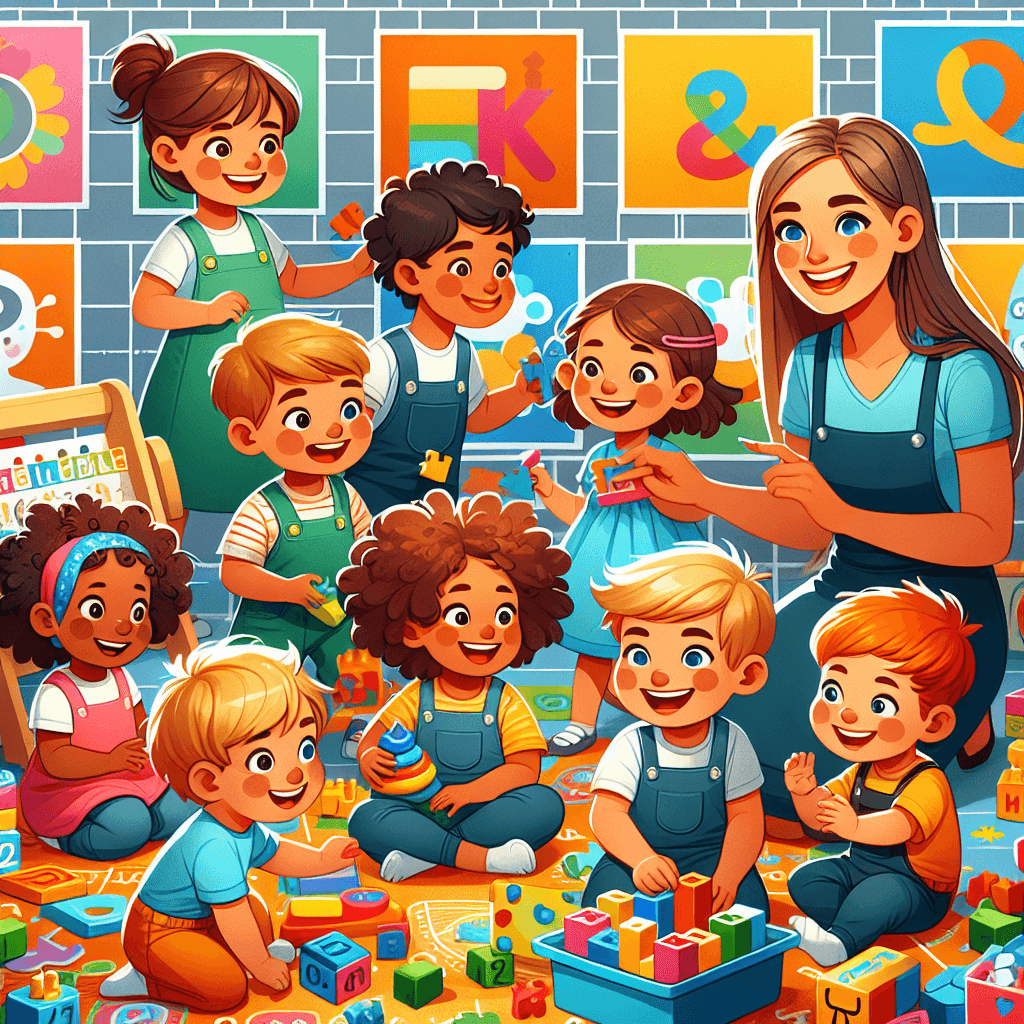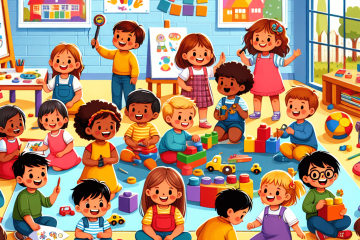“`html
The Essential Role of Play in Early Childhood Development
Understanding the crucial role of play in early childhood development can significantly impact how we approach education and growth during these formative years. Learning through play is not just a mantra for keeping children entertained; it’s a foundational element that shapes their cognitive, emotional, and social development.
Why Play is Critical in Early Learning
Play is often considered the ‘work’ of children. It’s through play that children explore their environment, understand their world, and develop critical skills. Research underscores the importance of play in developing essential skills such as:
- Cognitive skills – Problem-solving, memory, and critical thinking
- Emotional regulation – Understanding and managing emotions
- Social skills – Communicating, cooperating, and empathy
- Physical development – Fine and gross motor skills
The Benefits of Different Types of Play
There are several types of play, each contributing uniquely to a child’s development:
1. Free Play
Unstructured, voluntary play that is initiated and directed by the child:
- Encourages creativity and imagination
- Fosters decision-making and independence
2. Structured Play
Organized play with a set structure or rules, often led by adults:
- Enhances understanding of rules and guidelines
- Promotes teamwork and cooperation
- Improves strategic thinking in games like puzzles, board games, etc.
3. Physical Play
Activities that promote children’s physical development:
- Builds strength and coordination
- Improves overall physical health
- Supports social interaction through team sports and group activities
4. Pretend Play
Role-playing and make-believe activities where children use their imagination:
- Enhances language skills and vocabulary
- Fosters empathy as children experiment with different roles and viewpoints
How Play Aids Cognitive Development
Play is pivotal to developing a child’s cognitive abilities. During play, children engage in activities that require them to think, learn, and solve problems. This process aids in developing:
- Memory – Recalling steps in a game or the rules of a play scenario
- Critical Thinking – Strategizing to achieve a goal or overcome a challenge
- Language and Numeracy – Engaging in conversations during play, using numbers in games
Moreover, innovative play situations enable children to practice and refine these skills in a safe and supportive environment. Consequently, they are better prepared for academic challenges and lifelong learning.
Emotional and Social Development through Play
One of the most profound benefits of play is its ability to bolster a child’s emotional and social skills. Through interactions in various play activities, children learn to:
- Express themselves – Understanding and communicating feelings through role-play and storytelling
- Negotiate and cooperate – Working with others, sharing, and resolving conflicts
- Build resilience – Experiencing setbacks and learning to cope with failure in a supportive setting
These experiences are critical as they lay the foundation for future relationships and emotional well-being.
Practical Ways to Incorporate Play into Learning
Parents and educators can take active steps to ensure that play is a regular part of children’s daily routines:
- Designate time for play – Ensure children have ample unstructured time to engage in free play.
- Provide a variety of materials – Toys, costumes, arts and crafts supplies that stimulate different types of play.
- Encourage outdoor play – Physical activities in open spaces, parks, or playgrounds.
- Participate in play – Occasionally joining children in their play activities to guide and support them.
- Balance screen time – Encourage physical and interactive play over passive screen time.
Conclusion
In summary, play is not merely a leisure activity for children; it is a critical component of early childhood development. Promoting a play-based learning environment equips children with essential cognitive, emotional, and social skills that become the foundation for lifelong success. By recognizing and fostering the importance of play, parents, educators, and caregivers can profoundly influence a child’s growth and overall well-being.
“`




